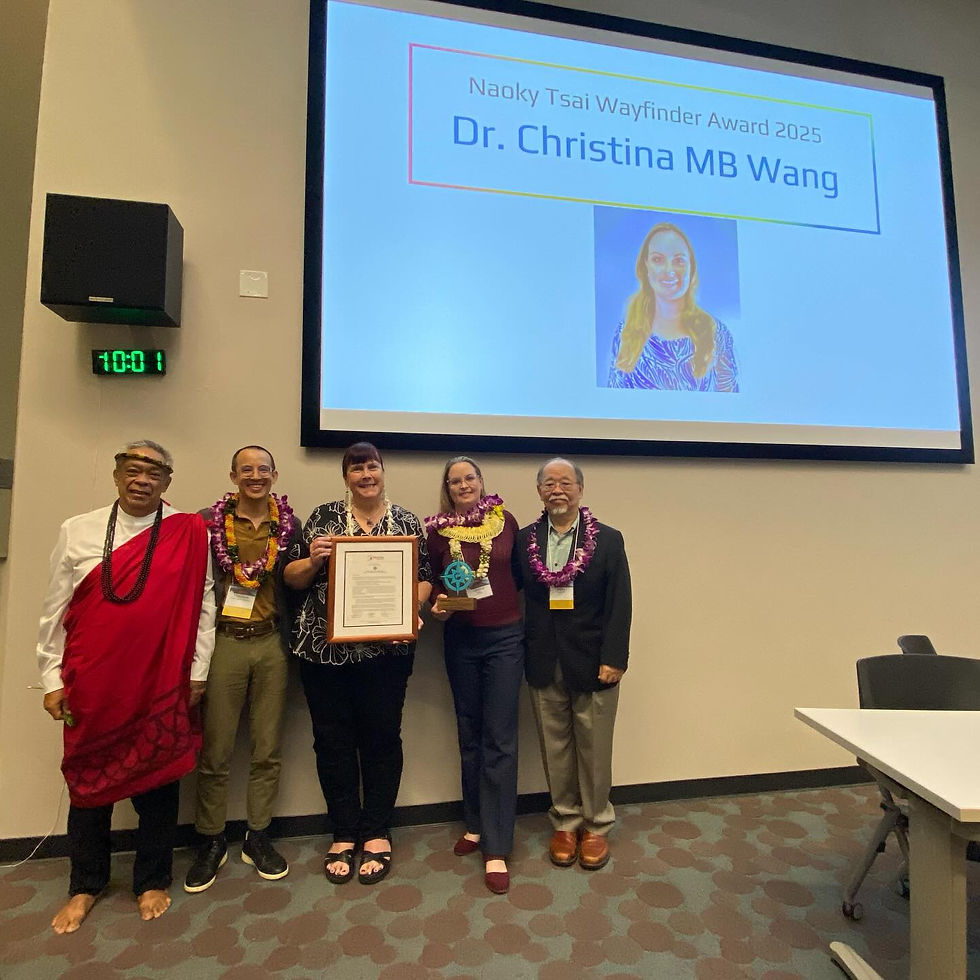Hawai'i Health Department Affirms Trans Rights in Public Health
- hnakao6
- Sep 8, 2023
- 2 min read
On September 5, the Hawaiʻi State Department of Health (DOH) issued a formal statement recognizing the health disparities faced by māhūwahine, māhūkāne, transgender, and gender diverse people as a “significant public health concern.”
The statement reads, in part: “We support our gender diverse community, and we also acknowledge the resilience and strength of gender diverse people in the face of discrimination and honor the acceptance and valued role of gender diverse people in traditional Hawaiian culture. The Department of Health believes that all people of Hawaiʻi should have an equitable opportunity to achieve their optimal state of health and well-being.”
HHHRC Transgender Services Manager Maddalyn Sesepasara welcomes the statement but also hopes that it is accompanied by ground-level policy changes that better meet the urgent health needs of trans and gender-diverse individuals in Hawaiʻi.
“At a time when so many of our trans sisters and brothers on the continent face increasing hostility in their own neighborhoods and in their state legislatures, it’s heartening to see that Hawaiʻi’s Department of Health recognizes the disparities faced by our trans community and calls for equity. However, more must be done to support functional access to gender-affirming care and other needed support,” she said. 83 anti-trans bills have passed in 2023.
Sesepasara co-authored a May 2022 Civil Beat op-ed encouraging then Governor David Ige to sign LGBTQ+ bills, including one to increase access to gender-affirming care. Despite the change in law, trans patients across the state have reported difficulties in accessing needed medical care and services.
Hawaiʻi’s trangender residents face serious challenges to their health and well-being from an early age. In 2018, DOH issued a report on transgender youth finding significant health disparities between cisgender LGB youth and heterosexual cisgender youth.
Among the 2018 report’s findings: Transgender youth in Hawaiʻi are 2.5 times more likely to experience sexual violence and four times more likely to be subject to forced sexual intercourse than cisgender youth and fare worse on mental health indicators. Nearly half of all youth identifying as transgender attempt suicide in a given year. Transgender youth are less likely to get adequate nutrition, sleep, or exercise, or have regular health check-ups. Transgender youth are more likely to drink alcohol, engage in binge drinking, smoke cigarettes, and use illicit drugs than cisgender youth.










Comments